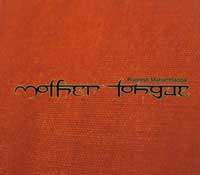Home » Jazz Articles » Album Review » Eric Comstock: No One Knows
Eric Comstock: No One Knows
Comstock begins the album with "Easy on the Heart," a beautiful slow ballad by bassist Charlie Haden, to which legendary Basie tenor saxophonist Frank Wess contributes a full-throated obbligato. The title song, "No One Knows," is a little-known tune by Billy Strayhorn, a wistful remembrance of unrequited love that—like Strayhorn's "Lush Life"—manages to combine heartbreaking sentimentality with just a dollop of cynical Weltschmerz. Comstock also performs Strayhorn's "Grievin'," as well as Strayhorn collaborator Duke Ellington's "Don't Get Around Much Anymore" and "Jump for Joy." On the latter tune, pianist Eric Reed acquits himself nicely with an up-tempo stride piano solo.
Frank Wess graces the album with his distinctive flute on Benny Carter's "When Lights Are Low." Comstock and his fine rhythm section play this song perfectly with an easy, swinging gracefulness. I was also very impressed with Comstock's understated version of Burton Lane's "Old Devil Moon." By slowing down the tempo of this song, Comstock was able to bring a whole new interpretation to the tune. Lane's "I Hear Music" concludes the album.
One hallmark of Comstock's interpretive skills is the attention that he pays to the verses of songs. Too often singers will race through the verses of tunes like they are reading the legal disclaimers in Ronco ads on television. Unlike the infantile lyrics of many rock tunes, the words of a great song actually have something important to say. But the clarity of Comstock's voice is the real revelation. After daily media bombardment by Mick Jagger's hyena-like barking, Dylan's autistic mumblings, and 50 Cent's simian gutteral utterances, along comes the perfect vocal technique of Eric Comstock. Comstock may not represent the salvation of Western civilization, but at least we know that the Great American Songbook will continue to live on for those who know that high quality and popular song need not be mutually exclusive terms.
Track Listing
Easy on the Heart, To the Ends of the Earth, No One Knows, Don't Get Around Much Anymore, Jump for Joy, Small World, The Night Has a Thousand Eyes, Grievin', Imagination, I Do It for Your Love, Hazel's Hips, When Lights Are Low, Old Devil Moon, There Will Never Be Anothr You, If I Had My Druthers, I Hear Music
Personnel
Eric Comstock
pianoEric Comstock--piano and vocals; Frank Wess--tenor saxophone and flute; Wycliffe Gordon--trombone; Eric Reed--piano; Peter Berstein--guitar; Peter Washington--bass; Matt Wilson--drums
Album information
Title: No One Knows | Year Released: 2005 | Record Label: Harbinger
Tags
PREVIOUS / NEXT
Support All About Jazz
 All About Jazz has been a pillar of jazz since 1995, championing it as an art form and, more importantly, supporting the musicians who make it. Our enduring commitment has made "AAJ" one of the most culturally important websites of its kind, read by hundreds of thousands of fans, musicians and industry figures every month.
All About Jazz has been a pillar of jazz since 1995, championing it as an art form and, more importantly, supporting the musicians who make it. Our enduring commitment has made "AAJ" one of the most culturally important websites of its kind, read by hundreds of thousands of fans, musicians and industry figures every month.



















